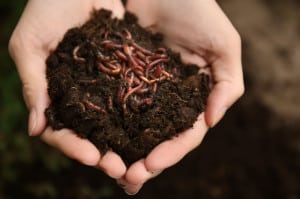
 Whether you run a professional landscaping company or garden at a commercial scale, you recognize the value of seeing nature at work. In fact, your job depends on it.
Whether you run a professional landscaping company or garden at a commercial scale, you recognize the value of seeing nature at work. In fact, your job depends on it.
Grass, plants and crops all grow throughout their respective seasons and require proper maintenance and care for optimal health. When weather conditions, pest pressure or other issues threaten the well-being of those living things, you double down on your area of expertise and your innovation to solve the problem.
There’s never been a better time to build greater resilience into the landscapes and gardens you manage. Researchers across this industries are hard at work coming up with new ways to work more closely with nature—rather than against it—to encourage optimal plant health and productivity. If you’re in landscaping, you recognize how important it is for lawns and surrounding plants to look their best. If you garden professionally, you know that crop health and productivity often hinges on favorable environmental conditions.
Vermicomposting offers something for professionals in both industries. It turns out when you let nature do its work—as happens in vermicomposting, in which worms go to work breaking down feedstock materials into a nutrient-rich soil amendment—good things happen.
For the lawn care industry, these positive benefits of vermicomposting include:
For professional gardeners, vermicomposting advantages include:
How exactly does a soil amendment derived from the process of vermicomposting do all of this? Research continues to reveal new clues about how this works. In general terms, vermicomposting leaves behind a product known as worm castings. This beneficial product has passed through worms’ digestive system, which is composed of six parts. Those parts are the mouth; the pharynx, where soil is swallowed; the esophagus, which helps take extra calcium out of the worm’s body; the crop, for temporary storage; the gizzard, for grinding up the food; and the intestines, which absorb food the worm needs and push out waste. The leftover castings are rich in nutrients and an amazing amendment for your lawn or garden. (You can learn even more facts about the amazing earthworm from the University of Pennsylvania, which provided these handy insights on a worm’s insides.)
For years, lawn care and gardening professionals have turned to Worm Power Liquid Extract, a reliable soil amendment powered by worm castings with amazing results to show for it. People have purchased more than 1 million gallons of this world-famous product. That’s because it builds resilience in lawns and gardens, saves time through easy application and improve outcomes in the natural world you call your office. To learn more about Worm Power and how it can benefit your business, call 855-260-9676 or visit us online. We look forward to sharing the amazing things worms can do for you.